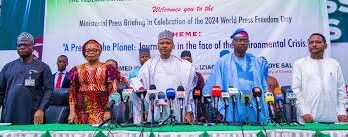The removal of fuel subsidy by President Bola Tinubu has collapsed black market cartels along West Africa routes like Togo, Benin Republic and Cameroon. Transporters say, the product has become very and scarce and expensive when available.
Things have been topsy turvy lately on the roadsides of West African nations where cheap contraband petrol from Nigeria has abruptly doubled in price, upending an informal sector that is central to the region’s economic activity.
Since Nigeria scrapped a state fuel subsidy on May 31, black market fuel vendors and commercial drivers in Cameroon, Benin and Togo who were heavily reliant on petrol smuggled from Nigeria have seen their businesses collapse.
With supplies dwindling, queues have been forming at official petrol stations, where fuel is now competitively priced.
In Garoua, a town in northwest Cameroon about 60 km (37 miles) east of the Nigerian border, a litre of petrol on the black market used to sell for about 300 CFA francs ($0.48). Now the minimum is 600 CFA francs, vendors said.
“Supply has become scarce and customers think we’re ripping them off with this high price, yet it’s from Nigeria that prices have soared,” said Perevet Dieudonne, a black market seller.
The knock-on effects on motorcycle-taxis, a form of public transport ubiquitous in West Africa, include conflict between riders who often live hand-to-mouth and customers who demand cheap fares no matter what.
Ousmanou Mal Djoulde, a rider in Garoua, said he had been forced to more than double his fares. Many customers were refusing to pay and business was agonisingly slow.
The trade in black market fuel is so central to the local economy that authorities either turn a blind eye or are complicit. A Reuters reporter in Garoua saw a Cameroonian customs officer sitting on a motorcycle-taxi that was being refuelled with smuggled Nigerian petrol.




